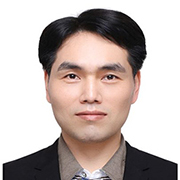
Prof. Hyun-Min Kim
Duke Kunshan University, China
Title: Reevaluating Paclitaxel Mechanisms: From Microtubule Stabilization to DNA Repair Pathways
Abstract:
Paclitaxel (Taxol), originally isolated from the Pacific yew tree in the 1960s, represents one of the most successful breakthroughs in cancer chemotherapy. Following its FDA approval in 1992 for ovarian cancer and later for additional malignancies, paclitaxel has significantly improved patient survival and quality of life, becoming the first “blockbuster” anticancer drug. Its primary mechanism of action lies in the stabilization of microtubules, thereby preventing their dynamic reorganization during mitosis. This disruption leads to cell cycle arrest and the induction of apoptosis, ultimately inhibiting tumor growth and progression. Despite decades of research, most mechanistic studies have concentrated on the role of paclitaxel in microtubule dynamics within somatic cells, leaving unexplored its potential involvement in DNA damage response and repair. This knowledge gap is particularly critical given the clinical success of paclitaxel in combination therapies with DNA-damaging agents. The limited understanding of how paclitaxel may modulate DNA repair pathways represents a fundamental barrier to fully appreciating its therapeutic potential and optimizing treatment strategies. This work underscores both the established and emerging roles of paclitaxel in cancer therapy, highlighting the urgent need to elucidate its contributions beyond microtubule stabilization. Such insights are expected to advance the rational design of combinatorial regimens and improve translational outcomes in oncology.
Biography:
Dr. Kim's illustrious research career is distinguished by his unwavering commitment to unraveling the intricate mechanisms of DNA damage repair and genome editing. His journey began with a fervent dedication to understanding the fundamental processes underlying DNA repair pathways, which are pivotal for maintaining genome integrity. Throughout his academic endeavors, Dr. Kim has emerged as a pioneering figure in this field, leveraging his expertise to develop innovative methodologies and advance scientific knowledge.
A significant milestone in Dr. Kim's research trajectory was the development of a streamlined method for CRISPR-Cas genome editing in C. elegans, a groundbreaking achievement that revolutionized genetic manipulation techniques in this model organism. His methodological innovation enabled precise genome modifications, including the introduction of mutations, epitopes, and deletions, with unprecedented efficiency and accuracy. Furthermore, Dr. Kim's pioneering work extended beyond method development, as he generated transgenic worms for research purposes, expanding the toolkit available for genetic studies in C. elegans.
Dr. Kim's contributions to genome editing have not only facilitated novel avenues of research but have also shed light on the intricate processes underlying DNA damage repair. By elucidating the molecular mechanisms governing DNA repair pathways, Dr. Kim has provided invaluable insights into the cellular responses to genotoxic stress and the maintenance of genome stability. His research has uncovered the role of epigenetic modifiers in DNA repair processes, highlighting the intricate interplay between chromatin remodeling and DNA damage response.
Beyond his groundbreaking research endeavors, Dr. Kim has also made significant contributions to the academic community through his teaching and mentorship activities. As a former professor at Tianjin University and currently serving at Duke Kunshan University, Dr. Kim has imparted knowledge and fostered the intellectual growth of countless students. His instructional journey has been characterized by innovative teaching strategies and a commitment to excellence in education.
Dr. Kim's influence extends beyond the confines of the classroom, as he actively engages in collaborative research projects with his students, resulting in impactful contributions to the field of biology. His collaborative efforts have led to significant advancements in CRISPR-Cas genome editing and the exploration of anti-cancer drug effects on reproduction and meiosis. Through these collaborative endeavors, Dr. Kim has nurtured the next generation of scientists, instilling in them a passion for scientific inquiry and a commitment to excellence.